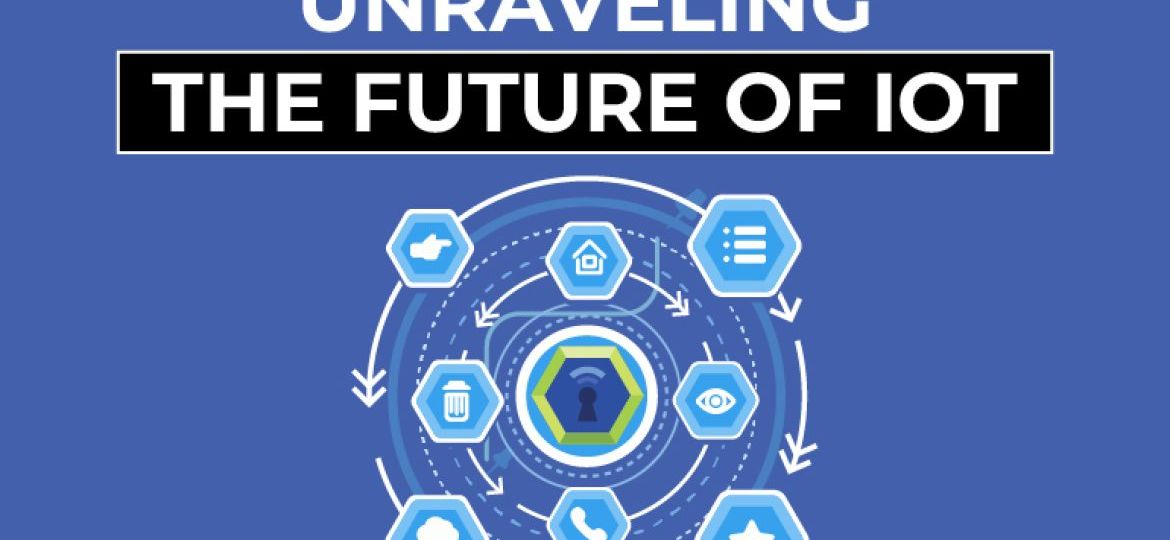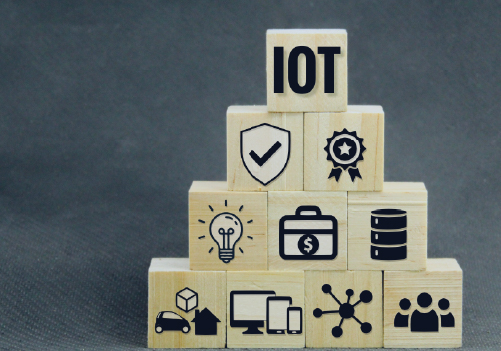
In our rapidly advancing digital world, the Internet of Things (IoT) stands at the forefront of technological innovation, promising to revolutionize how we interact with the world around us. IoT refers to the vast network of interconnected devices and objects embedded with sensors and software. It enables them to collect and exchange data over the Internet without requiring direct human intervention. This interconnectedness empowers devices to communicate, analyze, and act upon the data they gather, opening up many possibilities across various industries and sectors.
The advent of IoT has already demonstrated its transformative impact on numerous fields, such as healthcare, manufacturing, agriculture, transportation, and smart homes. As technology continues to evolve, so does the potential of IoT. This blog aims to delve into the exciting prospects and possibilities that lie ahead in the future of IoT.
Current State of IoT
The Internet of Things has already made significant strides, and its current state reflects a dynamic and ever-expanding landscape. IoT is being embraced across various industries and sectors, transforming how we live, work, and interact with technology.
Overview of the Existing IoT Landscape
- Industry Adoption: IoT has gained widespread adoption in industries such as manufacturing, healthcare, agriculture, transportation, energy, and retail. These sectors have integrated IoT solutions to streamline operations, optimize resource usage, and enhance efficiency.
- Consumer Applications: IoT has entered our homes through smart devices like thermostats, home security systems, voice assistants, and smart appliances. Consumers increasingly embrace these connected devices, seeking convenience and automation in their daily lives.
- Connected Vehicles: The automotive industry has seen a surge in connected cars, enabling features like real-time navigation, vehicle diagnostics, and autonomous driving advancements, making transportation smarter and safer.
- Wearables and Health Tech: IoT-driven wearable devices like fitness trackers and smartwatches have become famous for monitoring health metrics and promoting active lifestyles.
Key Industries and Sectors Utilizing IoT Technology
- Manufacturing and Industry 4.0: IoT has revolutionized manufacturing by enabling smart factories with connected machinery and sensors, improving productivity, predictive maintenance, and reducing downtime.
- Healthcare: IoT applications in healthcare include remote patient monitoring, smart medical devices, and connected healthcare facilities, allowing for personalized patient care and better health outcomes.
- Agriculture: Precision agriculture utilizes IoT devices to monitor and optimize crop health, soil conditions, and irrigation, increasing crop yields and sustainable farming practices.
- Transportation and Logistics: IoT transforms transportation and logistics with intelligent fleet management systems, real-time tracking, and autonomous vehicles, reducing costs and improving supply chain efficiency.
Challenges and Limitations Faced by IoT Implementations
- Security Concerns: The increasing number of connected devices presents cybersecurity challenges, with potential vulnerabilities leading to data breaches and privacy concerns.
- Interoperability Issues: IoT devices and platforms often need more standardized protocols, making seamless integration and communication challenging.
- Data Management and Analysis: Handling the massive volume of data generated by IoT devices requires robust data management and advanced analytics tools to derive valuable insights.
- Scalability and Infrastructure: As IoT networks expand, scalability and reliable infrastructure become essential for sustaining the growing ecosystem.
Despite these challenges, the current state of IoT is promising, with ongoing research and developments aimed at overcoming obstacles and maximizing its potential across industries and domains. As we look towards the future, IoT’s trajectory is poised to be even more transformative, unlocking new opportunities and reshaping how we experience the world.
Advancements in IoT Technology

The Internet of Things (IoT) continually evolves with cutting-edge advancements that drive its expansion and application in various sectors. Emerging trends like edge computing enable real-time decision-making and efficient data management by processing information closer to its source.
Integrating Artificial Intelligence (AI) and Machine Learning (ML) empowers IoT devices to learn from data patterns and make intelligent decisions, enhancing overall performance. With its decentralized and tamper-proof nature, blockchain technology strengthens IoT security, ensuring data integrity and fostering trust among interconnected devices.
Additionally, low-power IoT protocols, such as Narrowband IoT (NB-IoT) and Long-Range Wide Area Networks (LoRaWAN), extend device battery life, making them suitable for long-term deployments and remote locations.
Furthermore, the integration of 5G with IoT capabilities revolutionizes data transfer with high-speed connectivity and reduced latency, allowing for large-scale IoT ecosystems and enabling real-time applications like augmented reality (AR) and autonomous vehicles.
The synergy of 5G and edge computing further enhances data processing efficiency. These advancements propel the potential of IoT, promising a more connected, intelligent, and transformative future across industries, even as challenges related to data privacy, standardization, and ethics remain to be addressed.
Future Opportunities and Implications
The future of IoT holds vast opportunities and far-reaching implications that have the potential to reshape industries and societies. Economically, IoT is projected to unlock new revenue streams and business models, driving job creation and fostering innovation.
Smart cities with IoT infrastructure promise improved urban planning, optimized resource management, and enhanced citizen experiences, leading to more sustainable and efficient living environments. IoT’s remote monitoring capabilities could revolutionize patient care, reducing healthcare costs and improving medical outcomes.
Furthermore, precision farming through IoT applications can address food scarcity and ensure sustainable practices in the agricultural sector. However, with these opportunities come ethical considerations, as the responsible handling of data and privacy concerns becomes paramount. As the future unfolds, harnessing the potential of IoT while addressing its challenges will be crucial in realizing a truly connected, efficient, and sustainable world.
Conclusion
As the world moves towards a more connected and intelligent future, IoT’s impact will continue to be profound. Embracing AI, edge computing, and 5G integration, IoT holds the potential to revolutionize smart cities, healthcare, agriculture, and various other sectors.
However, alongside these opportunities, addressing ethical concerns and ensuring data privacy is essential to building a secure and sustainable IoT ecosystem. By responsibly harnessing the potential of IoT, we can pave the way for a brighter and more interconnected world.
Protected Harbor stands out as one of the top Managed Service Providers (MSPs) and software development companies in the US, consistently leveraging IoT technologies to drive innovation and deliver cutting-edge solutions. Contact us today to explore how IoT can revolutionize your operations, optimize efficiency, and drive innovation for a brighter future. Together, let’s embrace the possibilities of IoT and shape a connected world that benefits everyone.

